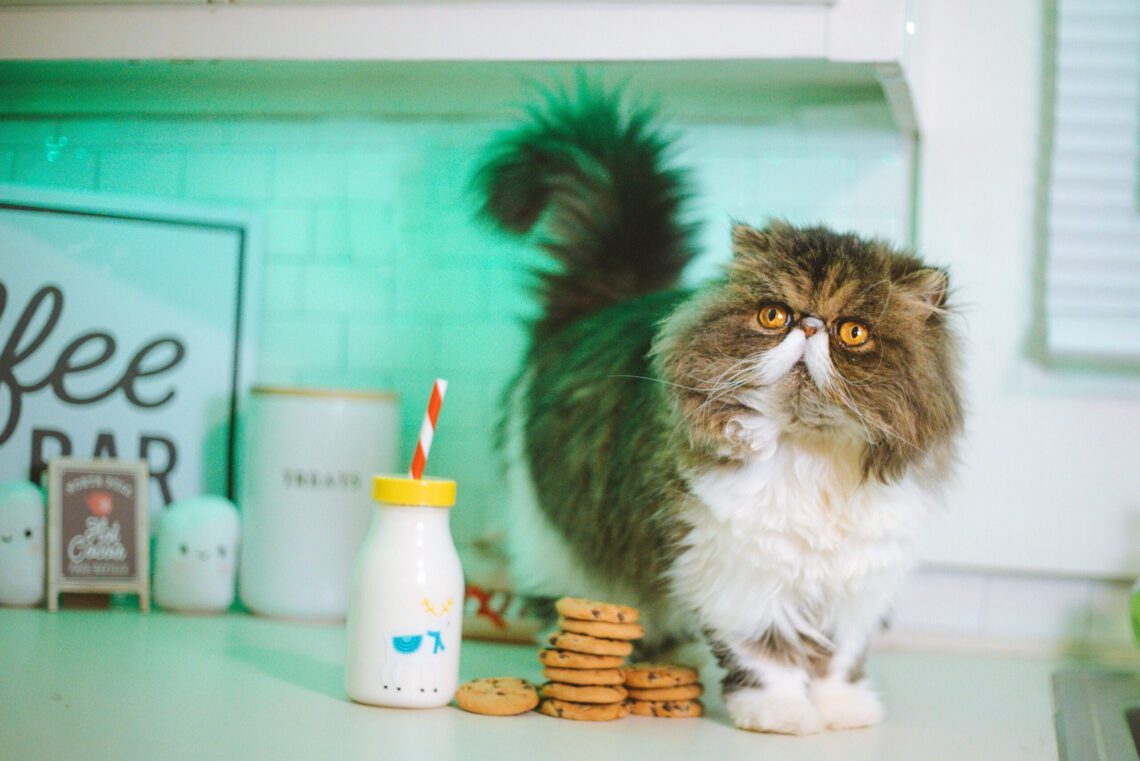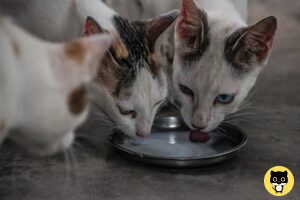Can cats drink Lactose-Free Milk?
As cats grow in popularity as pets, more and more cat owners are looking for ways to provide healthy, unique, and nutritious treats to their feline friends. One of the products that has become increasingly popular in recent years is lactose-free milk. But before you give your cat a glass of lactose-free milk, it’s important to understand what it is and if it’s safe for cats to drink. In this article, we’ll explore the potential benefits and risks of feeding cats lactose-free milk and answer the question: can cats safely enjoy lactose-free milk?
What is Lactose-Free Milk?
Lactose-free milk is milk that has been treated to remove the lactose, which is a sugar found in milk. This process, known as lactase hydrolysis, breaks down the lactose into two other simple sugars, glucose and galactose. This process makes the milk easier to digest by people and animals who are lactose-intolerant.
It’s important to note that lactose-free milk is not the same as skim milk or unsweetened almond milk. While these milks are lower in lactose, they still contain lactose. Lactose-free milk is made with a special process that removes all traces of lactose.
Can Cats Drink Lactose-Free Milk?
The short answer is yes, cats can drink lactose-free milk. But that doesn’t mean it’s necessarily a good idea. Cats are obligate carnivores, meaning their diet should consist mainly of meat. Dairy products, including lactose-free milk, are not part of a cat’s natural diet.
However, if you want to give your cat a special treat, lactose-free milk is an option. It can provide some nutritional benefits, and cats seem to enjoy the taste. Just be sure to consult your veterinarian before introducing any new food into your cat’s diet.
Is Lactose-Free Milk Safe for Cats?
Generally speaking, lactose-free milk is considered safe for cats. Again however, it’s important to keep in mind that cats are not designed to consume milk, and the body may not be able to process the lactose-free milk properly. This can lead to digestive issues such as diarrhea and vomiting.
Also, lactose-free milk may contain large amounts of (other) sugar, which can be harmful to cats. Too much sugar can lead to obesity and diabetes, which can have serious health consequences.
Are There Any Health Benefits for Cats Drinking Lactose-Free Milk?
Yes, there are some potential health benefits associated with cats drinking lactose-free milk. Lactose-free milk is a source of protein, and it contains essential vitamins and minerals that cats need for good health. It also has a lower fat content than regular milk, which can be beneficial for cats that are overweight.
Additionally, some cats may find the taste and texture of lactose-free milk appealing. This can make it a great way to entice picky cats to eat.
What Are the Nutritional Differences Between Lactose-Free Milk and Regular Milk for Cats?
The nutritional differences between lactose-free milk and regular milk for cats are not significant. The main difference is that lactose-free milk is lower in lactose, which can make it easier to digest. Both types of milk are sources of protein, calcium, and other essential vitamins and minerals.
The biggest difference between the two types of milk is thus the type of sugar content (not the amount per se). Lactose-free milk contains other sugars than lactose (but it still contains sugars), so it’s important to be mindful of how much you feed your cat.
What Are the Risks of Feeding Cats Lactose-Free Milk?
The biggest risk associated with feeding cats lactose-free milk is digestive upset. As mentioned earlier, cats are not designed to digest milk, and the body may have difficulty processing even the lactose-free milk. This can lead to diarrhea and vomiting, which can be dangerous for cats.
Another risk is obesity. Lactose-free milk may (depending on the brand) contain more sugar than regular milk, so again it’s important to be mindful of how much you feed your cat. Of course, too much sugar can lead to weight gain and diabetes, both of which can be serious health problems in cats.
What Other Dairy Products Are Safe for Cats?
If you’re looking for a way to give your cat a special treat, there are other dairy products that are safe for cats. Cheese, yogurt, and other low-lactose dairy products can be given to cats in moderation. However, it’s important to read the labels to make sure the dairy product is low in lactose and free of additives.
Conclusion
In conclusion, cats can safely enjoy lactose-free milk in moderation. Lactose-free milk can provide cats with some nutritional benefits, and cats seem to enjoy the taste. However, it’s important to be mindful of the sugar content and only give it to your cat in moderation. Additionally, it may be wise to consult your veterinarian before introducing any new food into your cat’s diet.
Can cats safely enjoy lactose-free milk? The answer is yes, but it’s important to understand the potential risks and benefits of feeding cats lactose-free milk.
Have you given a cat lactose-free milk? Please Register and leave a reply below, or leave a post in the Forum. Share your experience to guide others.






